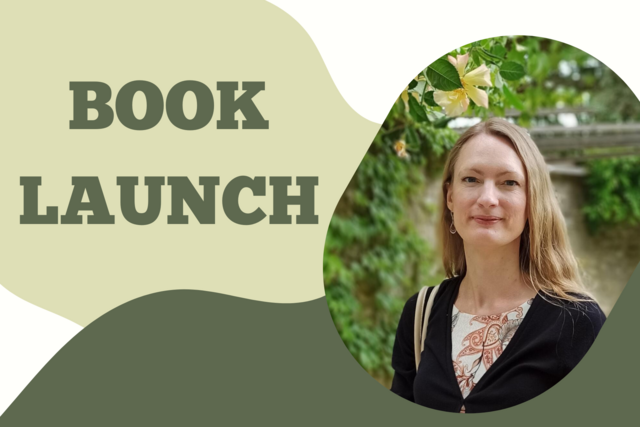You are here:

Papusza / Bronisława Wajs. Tears of Blood
Volha Bartash (Regensburg), Tomasz Kamusella (St. Andrews)
- Beginning:
- Tuesday, 01 July 2025 16:15
On 1st July2025 we will welcome our former postdoc Volha Bartash (Regensburg) and one of the co-authors Tomasz Kamusella (St. Andrews). They will present their book Papusza / Bronisława Wajs. Tears of Blood - A Poet’s Witness Account of the Nazi Genocide of Roma, released by the publisher Brill. This event will be moderated by Tetiana Klepikova.
Abstract:
Ratfale Jasfa (Romani: ‘Tears of Blood’) is a poem by the Romani poet Papusza (Bronisława Wajs) who survived the German occupation and the Second World War in Volhynia, currently Ukraine. It is also one of the earliest known testimonies by a Romani genocide survivor and a Romani woman. This book introduces the recently re-discovered manuscript which is four times longer than the previously known text. The volume includes a transcript of the poem in Romani, a translation into English, extensive historical-philological commentaries, alongside stand-alone chapters on the poet, manuscript and the historical context.
Volha Bartash:
She is a historian and ethnologist specializing in the history and culture of Roma and Sinti, the Nazi genocide of Roma, memory studies and Baltic studies. Since August 2024, she has been a research associate in the DFG–AHRC project “Romani Migration between Germany and Britain (1880s–1914): Spaces of Informal Business, Media Spectacle, and Racial Policing” at the University of Münster. She co-leads the international research network “Margins of Memory: Cultures and Politics of Non-Hegemonic Remembrance” (with Tatiana Klepikova), based at the Leibniz ScienceCampus Regensburg. Her forthcoming monograph, Survival as a Daily Routine: Roma in the German-Occupied Belarusian-Lithuanian Border Region (Brill), investigates Roma experiences under German occupation, focusing on survival strategies and acts of resistance.
Tomasz Kamusella:
He is Reader in Modern Central and Eastern European History at the University of St Andrews, Scotland. His recent monographs include Ethnic Cleansing during the Cold War (Routledge, 2018), Politics and Slavic Languages (Routledge, 2021), and Eurasian Empires as Blueprints for Ethiopia (Routledge, 2021). His reference work Words in Space and Time: A Historical Atlas of Language Politics in Modern Central Europe (CEU Press, 2021) is available in open access. Kamusella’s writings on Albanian issues were published in Politika gjuhësore dhe gjeopolitika (Littera, Prishtina, 2023) and Rreziqet e neoimperializmit rus (Kristalina, Tirana, 2024). His latest coedited volumes include Languages and Nationalism Instead of Empires (Routledge, 2023) and Papusza / Bronisława Wajs: Tears of Blood – A Poet’s Witness Account of the Nazi Genocide of Roma (Brill, 2024). His short stories appeared in the bilingual collection Limits / Styknie (Silesia Progress, 2019), featuring English originals alongside their translations into the Slavic microlanguage of Silesian.
Tetiana Klepikova:
She leads a research group on queer literatures and cultures under socialism at the University of Regensburg. She is co-investigator on the project “Gender and Sexuality Discourses in Post-Soviet Muslim Republics” (led by Prof. Timothy Nunan) and co-convenor of the international research network “Margins of Memory: Cultures and Politics of Non-Hegemonic Remembrance” (with Dr. Volha Bartash). Her research explores queer performance, memory, and identity politics in Eastern Europe, the South Caucasus, and Central Asia.
Venue:
GS OSESUR, Landshuter Straße 4, 93047 Regensburg, room 017 (hybrid)
Zoom-Link > https://uni-regensburg.zoom-x.de/j/61810646895?pwd=70pqv9h2RK3aeK6ZDLKEKv5gA2ZhG7.1
back